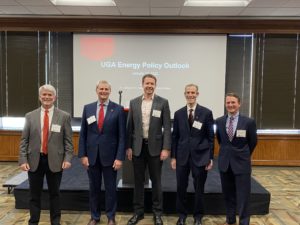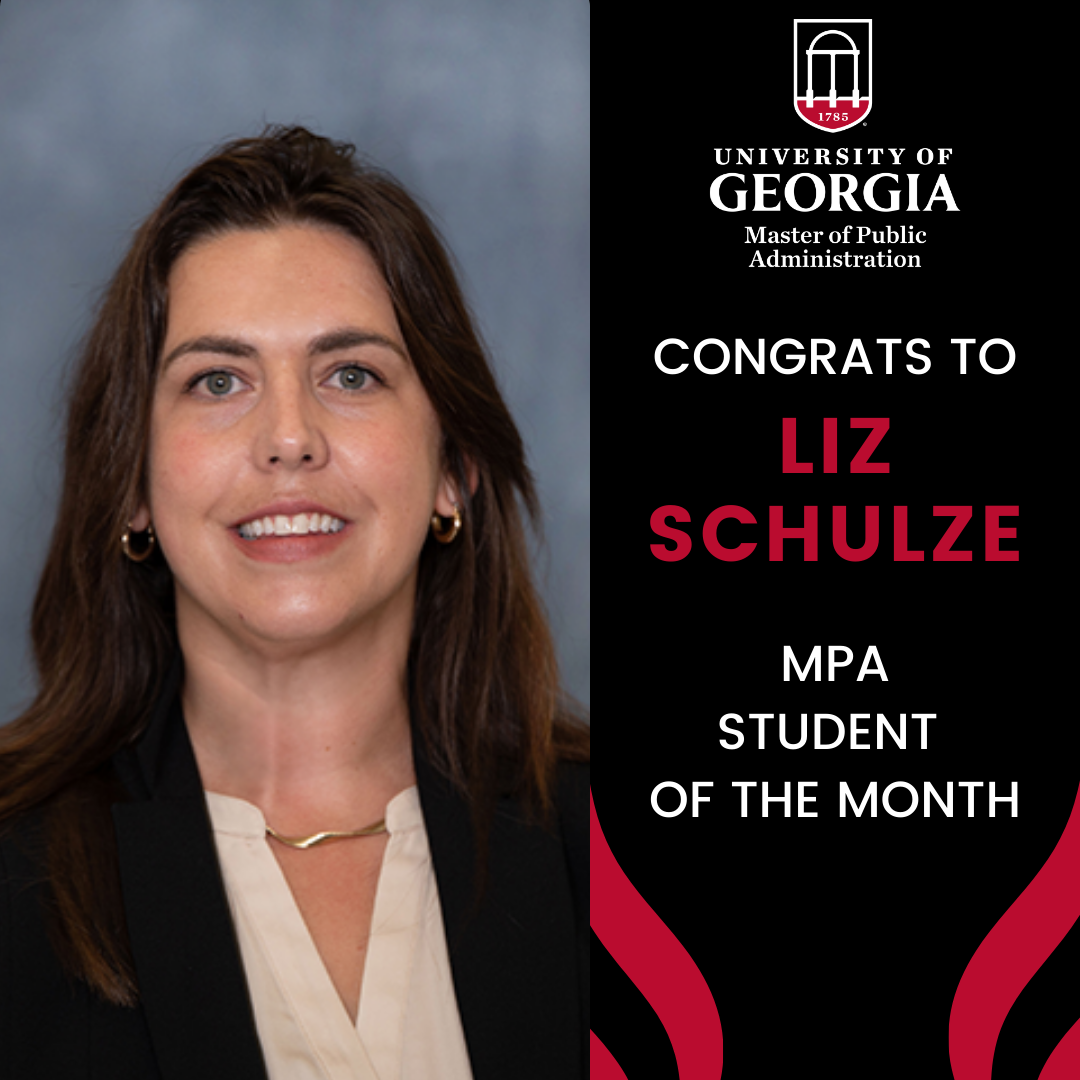
Earlier this month, the University of Georgia School of Public and International Affairs (SPIA), College of Engineering, and the Center for International Trade and Security (CITS) hosted the inaugural UGA Energy Outlook: Security Implications of Energy Policy. Attendees heard from Dr. Justin Conrad, Director of the Center for International Trade and Security (CITS), Dr. Joshua Massey, the Director of the Master of International Policy Program at SPIA and a Senior Research Associate at CITS, and keynote speaker, Dr. David Gattie, an Associate Professor of Engineering at UGA’s College of Engineering and Senior Fellow at CITS. Opening remarks came from Georgia’s Public Service Commission Chairwoman, Tricia Pridemore. Commissioner Pridemore reinforced the importance of energy policy in Georgia. “Georgia is a special place, and our state energy sector is a major reason for our success,” said Pridemore.
CITS “has become known as a leading source of research, teaching and policy expertise on matters of security but particularly in three areas- nuclear nonproliferation, human security, and energy security,” according to Dr. Conrad. Together with SPIA and the College of Engineering, the event provided legislators, academics, and the public with key information to highlight the impacts of energy policy decisions. With a focus on the relationship between energy policy and security policy, the event shared research findings and pointed out “the magnitude of the risks that are embedded in our energy decisions,” said Dr. Massey. This year’s event set the framework for why it is imperative that we look at energy policy through a security lens.
The keynote speaker, Dr. David Gattie discussed the impact of energy policy decisions at the local, state and national levels, pointing to the fact that “energy is preeminently a resource with intrinsic security value… and not merely a market commodity or discussion item for climate change debates.” Dr. Gattie provided historical context, energy trends across the country and Georgia, an overview of global energy data, and the security implications of global energy competition. “This is about information… and to inform policy makers, decision makers, in the state of Georgia and in the country to inform those decisions better.” Data on total energy consumption was provided with a comparative analysis between the United States and other emerging economies across the world. Perspective was provided on the types of energy resources being consumed, differences seen between regulated versus deregulated markets, and the residential electricity rates by state. Shifting to a global perspective, Dr. Gattie explained the United States’ energy consumption profiles and their relation to the rest of the world, focusing on different regions and specific countries. He noted that, “we are far more deeply embedded in global issues today than we ever have been and perhaps more vulnerable than we have ever been.” The policies and energy strategies being implemented in other countries provide insight into differing perspectives in policy, anticipated trends in the use of energy resources, and potential issues the U.S. will face in the future. The connection between economic security, climate security, and national security are apparent. These are the areas that compel us to “look at this from a security-centric, climate-inclusive framework,” said Dr. Gattie.
Watch the full video of the 2022 UGA Energy Outlook here.
The goal of the UGA Energy Outlook is to inform Georgia’s energy debate through a data-driven overview and highlight the broader national, international and security implications. A special thank you to SPIA Dean Matthew Auer, College of Engineering Dean Don Leo, those attendees both online and in person and the experts that made this event possible.









